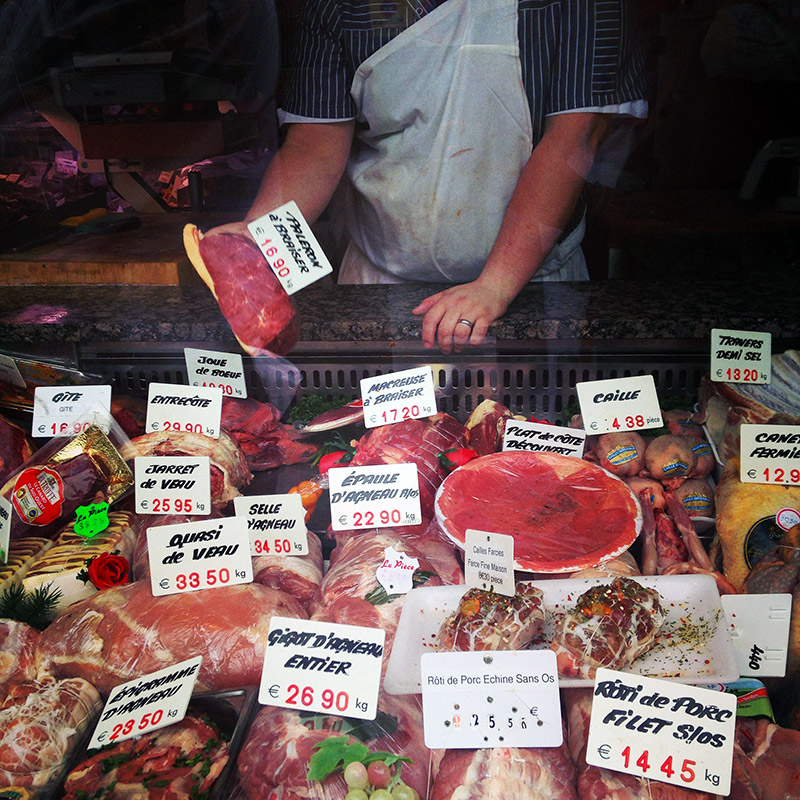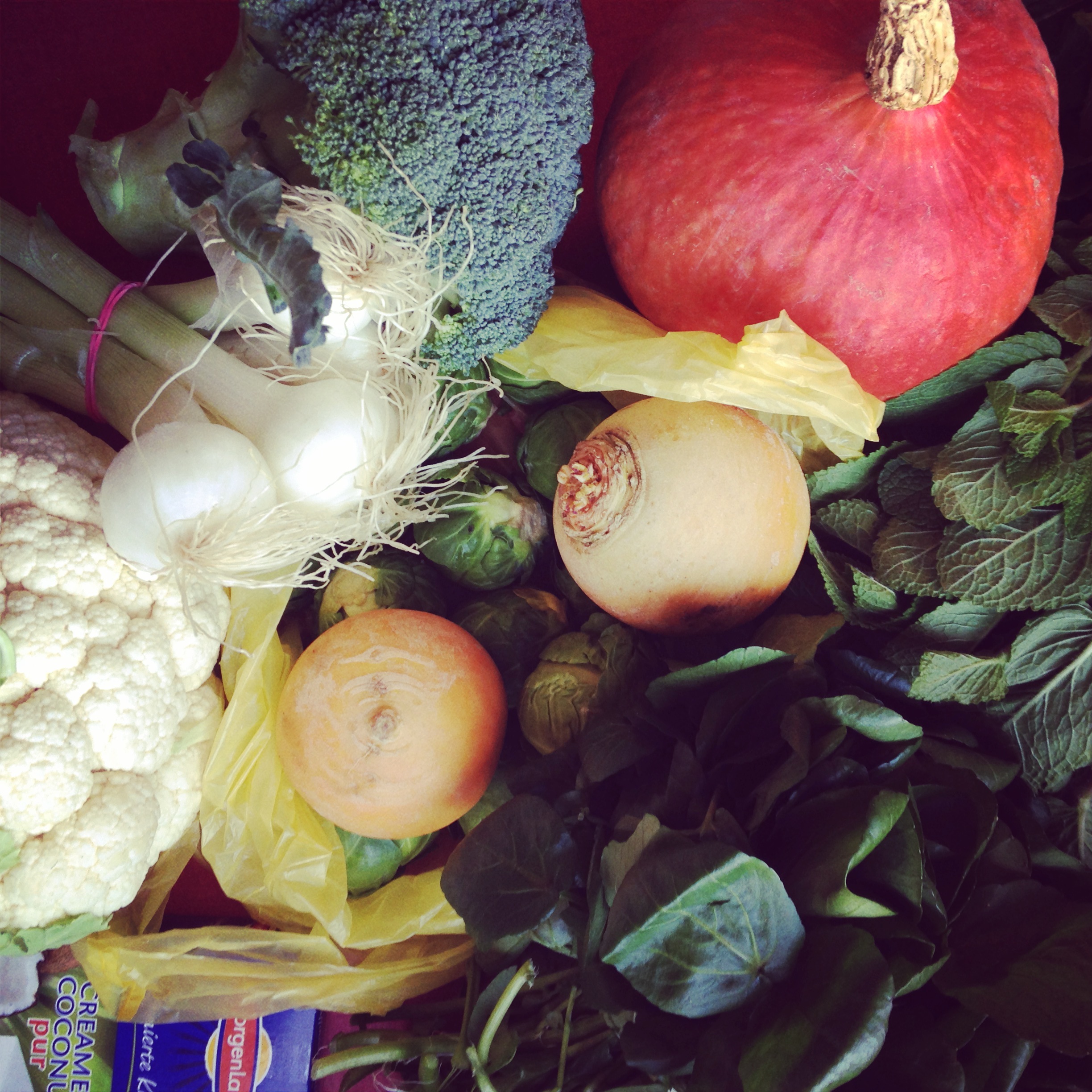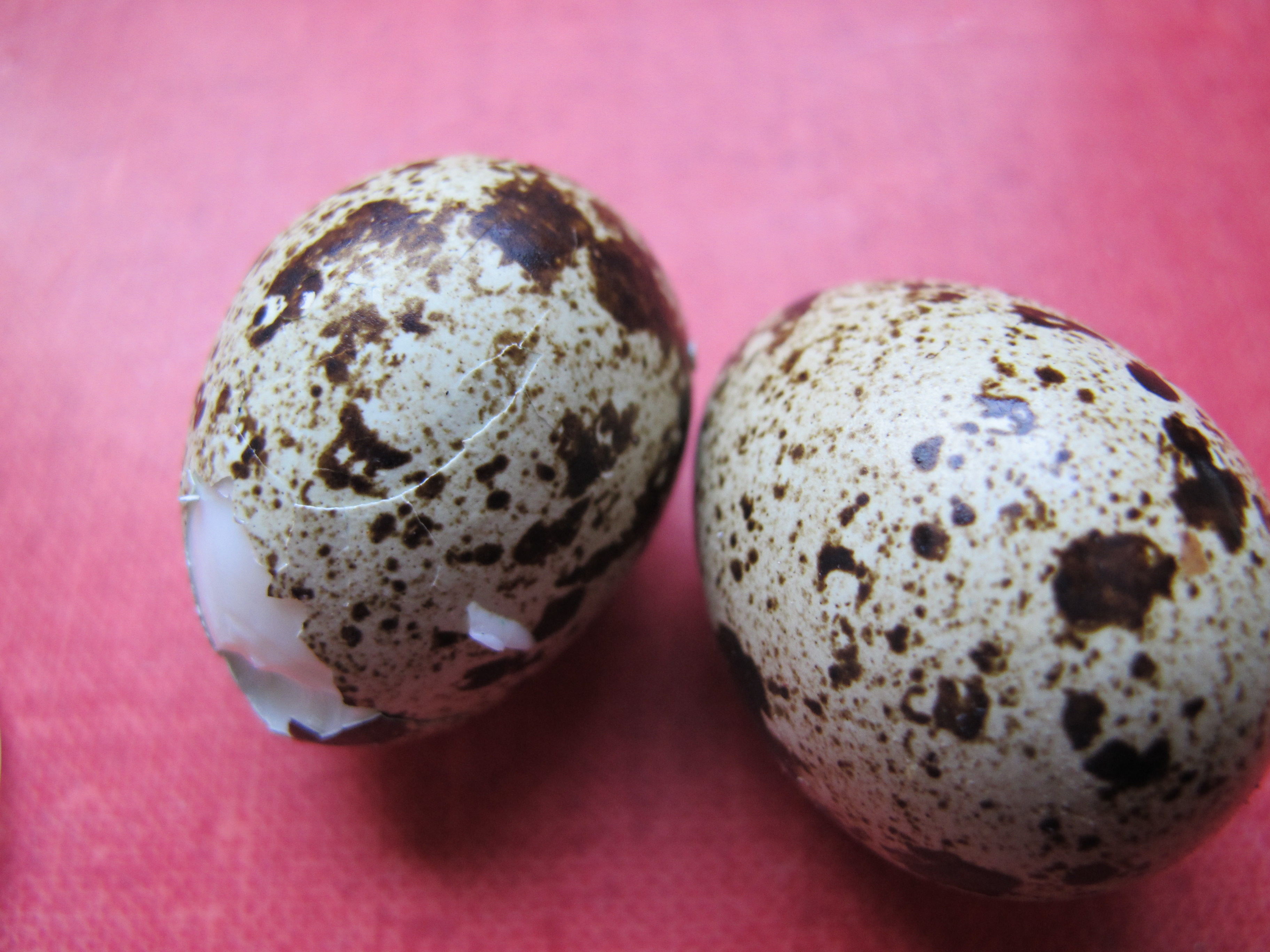I recently heard on Balanced Bites (one of my favorite health-themed podcasts) that adopting a new lifestyle and choices takes a good two years to really stick. That made complete sense to me. It was during my first pregnancy that I started to totally geek out on nutrition and health, and it really wasn’t until around the two-year mark that I could say that I had changed my entire diet and lifestyle in a meaningful way. I guess when it comes to making thoughtful food choices there’s nothing more motivating than having a small human developing inside of you!
For me the essential thing has always been thoroughly enjoying food, if possible in good company, and having that be the number one priority. If not always, close to always. And for that, striving to develop a good palate and cultivating curiosity are indispensable. Call it what you will (Paleo, Primal, ancestral, Weston Price…), to me it’s first and foremost “good food”. As Paul and Shou-Ching Jaminet explain in their excellent book, the Perfect Health Diet, our pursuit of delicious foods makes evolutionary sense. According to what researchers call the “optimal foraging theory”, bitter or unpleasant-tasting foods signaled the presence of food toxins while palatable foodstuffs were essential for our survival. However here’s where things get really tricky for us today: in a world so thoroughly perverted by big food industry, its “taste labs” and marketing chops, holding onto our intuition seems more and more elusive — even in a country with an impressive gastronomical tradition like France.
So in the face of all this, what are the everyday rules that I try to go by? I should begin by saying that none of this is meant to be taken to the letter and there are always exceptions. Whenever possible, I try to make good choices about something I am likely to do regularly (like what to eat for lunch at work). But say, if I’m at somebody’s house for dinner, or visiting family a few times a year, I don’t see the point in throwing a huge fuss in that situation.
So here goes:
Eat real foods – plants and animals.
And do read Michael Pollan if you have the time since few people talk about these issues as eloquently as he does. The Omnivore’s Dilemma had to be my favorite book of the decade. But I digress.
Eat the whole animal and particularly offal regularly.
Liver or kidney on the menu? That will be me, thank you very much. Fortunately finding this stuff on Parisian bistro menus is not a huge challenge (although here too this is less and less the case, such a bummer), and the preparation is often delicious. And let’s not forget about the importance of good homemade broth.
Do not neglect seafood and fish, especially oily cold-water fish.
We always make sure to have sardines, mackerel or salmon in the freezer which make a great dinner that is quick and nutritious. If you can, and this goes back to the “eat the whole animal” dictum, you could also make pâté from whole fish which is a great way to get the bones in (think calcium and other bony goodness).
Also don’t forget about other types of seafood. Shellfish like oysters and mussels are extremely nutritious (and again you’re eating the whole animal there — see a pattern?).
Avoid industrial processed foods as much as possible.
The French have a beautiful tradition, the apéritif. The idea is to have a drink (usually wine) with some delicious nibbly bits before dinnertime. What this allows for is to have a little something in your tummy before “attacking” the big meal so that, well, you won’t be attacking it with as much vigor. But what I notice increasingly, especially in the company of young people, is that for apéro you will likely be served something that comes right out of bright packaging and has little resemblance to its original ingredients (apéricubes anyone?). In fact there are entire supermarket aisles dedicated to apéro — mostly chips, rancid peanuts and the like. But this needn’t be so when there are such simple delicious alternatives. There’s no good reason not to eat real food for apéro (olives, charcuterie with good crusty bread, all kinds of “rillettes”, vegetable nibbles with hummus or a fromage blanc dip, to cite a few).
I can say similar things for breakfast and the afternoon snack (called goûter in France). Always choose real food instead of its processed cousins.
Here’s another big one:
Do not be afraid of fat. Be afraid of the word “light”.
This one actually goes back to the first dictum since something that is touted as being light most likely comes in packaging, meaning it has been denatured, meaning it is industrially processed. Dairy products should be fresh and full-fat, for example. And no, olive oil is not the only healthy fat. Olive oil is delicious and good for you, but it by no means has the full spectrum of fatty acids that our bodies need to thrive. For cooking and baking, I alternate between butter, coconut oil, coconut ghee and duck/goose fat (and some olive oil, especially for Turkish vegetable dishes which can also be eaten cold). If I could get my hands on it, I would also go for palm oil/shortening, lard and tallow but those things are hard to find in Paris, perhaps owing to their bad reputation. Which is so unfair by the way.
Also, and this is just as important, do not believe the hype about “heart-healthy” vegetable oils and avoid them like the plague. Repeat after me: saturated fat is good for you. (If this is the first time you’re hearing such a wild notion, I talk more about all that here. Go ahead, open your kitchen cupboard now. See that big yellow bottle of sunflower oil? It’s really good for fixing creaky doors! Just make sure you don’t use it for anything else.
Incorporate fermented foods into your life regularly.
Yogurt and kefir (especially easy to make), water kefir, lacto-fermented veggies like sauerkraut, beet kvass (baby loves this one), apple or pear butter…
Eat with the seasons and organic as much as is possible and reasonable.
Are you one of those people who thinks you don’t know what produce goes with what season? Well just take a walk down to the market and notice the colorful parade of the produce stalls – I swear you will end up with an idea of what’s local and in season, and what looks too perfect (and perfectly packaged) to be sourced locally and most likely has had to cross the oceans to be there. So don’t be expecting to eat tomatoes or strawberries in February! And while there are some things I don’t get too crazy organic about like onions and garlic (anything with a pungent smell really since I’m told that they naturally repel bugs), there are things I insist on getting organic and just don’t buy unless so: apples, pears, grapes, strawberries, potatoes, etc (in the absence of any similar resource specifically for Europe, I still do regularly consult the Dirty Dozen list). I would also recommend signing up for a farm share near you. This is called AMAP here in France and CSA (community-supported agriculture) in the US, and not only do you get to feel good about supporting a local farmer, the produce is always seasonal and often cheaper than store price too.
Be reasonable with baked goods and sweets.
I no longer automatically put bread on the table (something that is done both in France and my native Turkey) and mostly resist the temptation when I go out to eat unless it is really amazing. So I now treat it more as, well, a treat rather than a staple. I may have some with cheese at the end of the meal, or with a delicious bit of liver pâté or rillettes for apéro. And I try to make sure that it’s really good sourdough bread (the fermentation process improves its digestibility).
Get rid of nonstick cookware.
This one definitely took me a few years to get completely on board with but by now I don’t even think twice about it. I took my time redoing my collection of pots and pans from enameled cast iron (hello, I do live in the country of Le Creuset and Staub), stainless steel and ceramic. For this last two I’ve been using Cuisinox brand but really you can use any other brand as long as it’s not Teflon or doesn’t feature “non-stick coating”.
Well that’s it for now! This list is certainly not exhaustive but there’s no need to get you all overwhelmed; new routines are not established overnight. Rather it’s baby steps some days, and what feels like leaps and bounds on others. Then one day you just look back and say, “holy cow, I have come such a long way”. The essential thing is to appreciate the importance of cultivating good lifelong habits for yourself and your family.
Playing the long game in other words.




